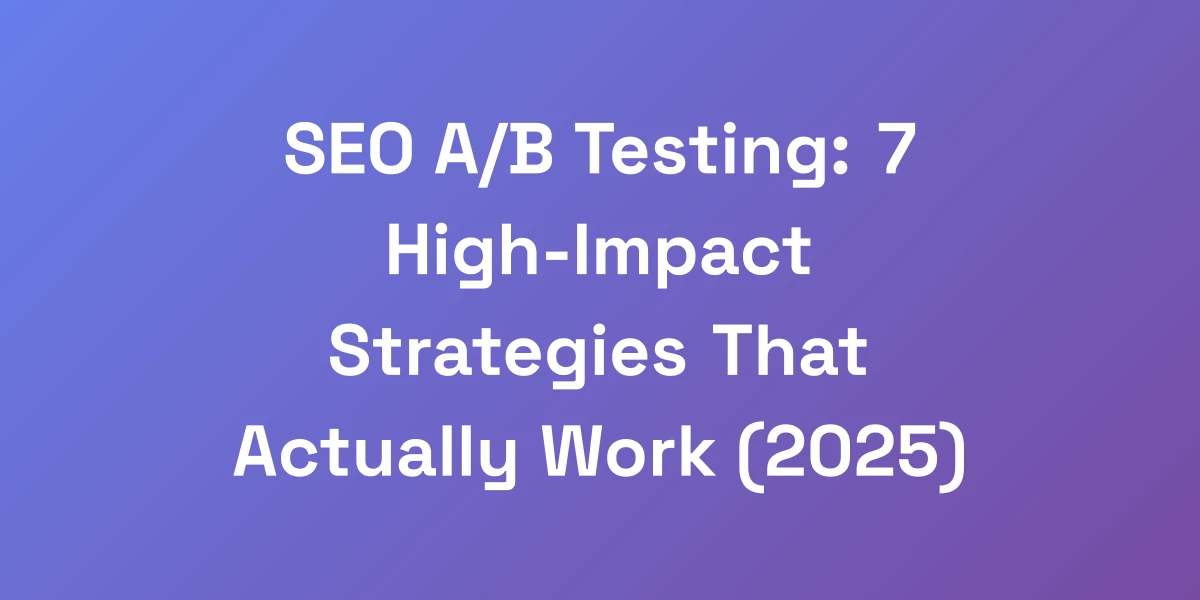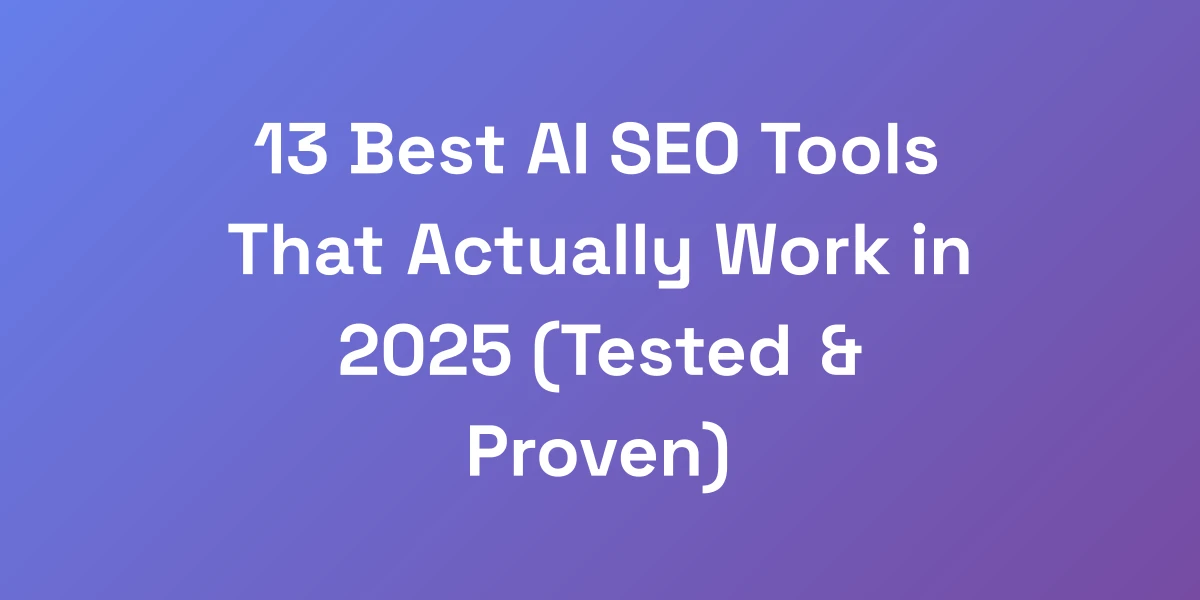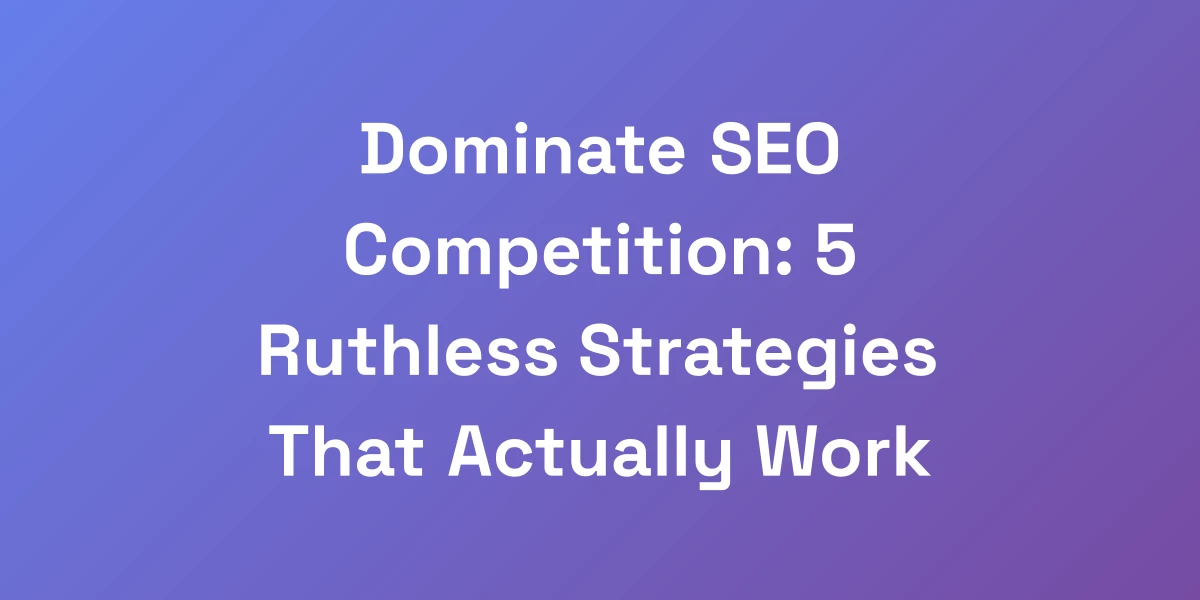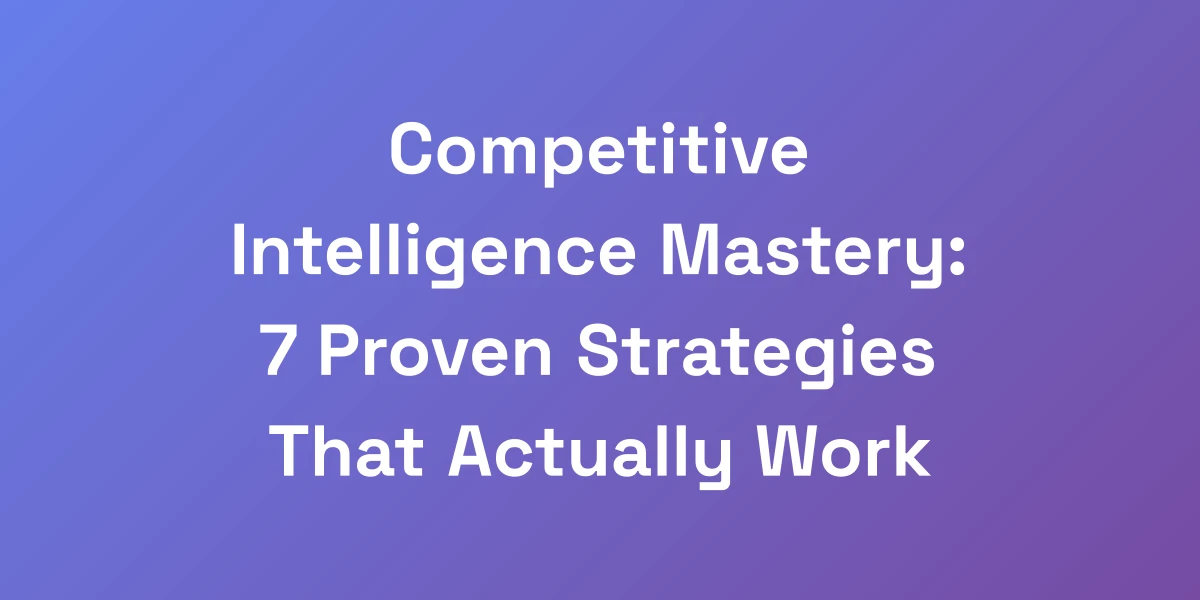
Cheap SEO Marketing: 7 Proven Strategies That Actually Work in 2025
Mar 7, 2025 | By zishansami102@gmail.com
The Truth About Cheap SEO Marketing in 2025
Let me cut through the BS right now – most cheap SEO services are garbage.
But here’s the reality: you don’t need to spend $5000/month to get results.
We’ve built multiple 8-figure businesses using strategic SEO, and we’re going to show you exactly how to get maximum ROI from minimal investment.
The key isn’t finding the cheapest provider – it’s about knowing where to allocate your limited resources for the biggest impact.
Let’s break down what actually moves the needle.
Why Most Cheap SEO Services Fail
Cheap SEO services often promise the moon but deliver dust. Why?
These services typically rely on outdated tactics like keyword stuffing and low-quality backlinks.
Not only do these methods fail to produce sustainable results, but they can also land your site in Google’s bad books.
Imagine investing your hard-earned money only to watch your site get penalized.
- Lack of Customized Strategies: One-size-fits-all approaches ignore your unique business needs.
- Poor Quality Content: Content is king, and cheap services often skimp on quality.
- Spammy Link Building: Instead of organic links, you get toxic backlinks that harm your reputation.
These pitfalls are why many businesses fail to see the promised ROI from cheap SEO services.
The Real Cost of Quality SEO
Quality SEO isn’t about how much you spend; it’s about how you spend it.
Investing wisely in SEO can lead to exponential growth without breaking the bank.
For example, spending $1,500/month on a well-rounded SEO strategy can yield better results than a $500/month service that uses black hat techniques.
- Content Creation: High-quality, relevant content attracts and engages your audience.
- Technical Optimization: Ensuring your website is fast, mobile-friendly, and free of errors.
- Strategic Link Building: Acquiring authoritative backlinks that boost your site’s credibility.
These elements work together to create a robust SEO foundation that drives sustainable traffic and conversions.
Risk vs. Reward: Understanding SEO Investment
When it comes to SEO, it’s essential to weigh the risks against the potential rewards.
Investing in quality SEO can lead to significant long-term benefits, including higher search rankings, increased organic traffic, and more conversions.
On the flip side, opting for the cheapest options can expose your site to penalties and long-term damage.
- High Investment, High Reward: Comprehensive SEO strategies require more upfront investment but offer higher returns.
- Low Investment, High Risk: Cheap SEO services might save money initially but can cost you more in the long run due to penalties and lost rankings.
Understanding this balance is crucial to making informed decisions about your SEO strategy.
Signs of Legitimate Budget-Friendly SEO Services
Not all hope is lost when searching for affordable SEO services. Here’s how to spot the good from the bad:
- Transparent Pricing: Legitimate services provide clear, upfront pricing without hidden fees.
- Proven Strategies: They use white hat techniques focused on sustainable growth.
- Client Testimonials: Genuine reviews and case studies demonstrate their effectiveness.
- Customized Plans: They tailor their services to meet your specific business needs.
By keeping an eye out for these indicators, you can find budget-friendly SEO services that deliver real value.
Strategic DIY SEO Techniques That Cost Nothing But Time
Instead of throwing money at agencies, let us show you what we did when we were bootstrapping our first business.
These are the exact strategies we used to rank #1 for competitive keywords without spending a dime on services.
The secret? Understanding that Google rewards value, not budget.
We’re going to give you our step-by-step playbook for implementing professional-level SEO tactics yourself, even if you’re starting from zero.
Essential Free SEO Tools for Beginners
Starting your DIY SEO journey? Here are the tools you can use without spending a penny, including some of the best automated SEO tools available:
- Google Search Console: Monitor your website’s presence in Google search results and identify issues.
- Google Keyword Planner: Discover keyword ideas and search volumes to target the right terms.
- Ahrefs Webmaster Tools: Analyze your site’s backlink profile and identify improvement opportunities.
- SEMrush SEO Toolkit: Utilize free features like the keyword magic tool and basic SEO audits.
Leveraging these tools effectively can give you a solid foundation for your SEO efforts.
Content Optimization Techniques
Content is the backbone of SEO. Here’s how to optimize your content:
- Keyword Research: Identify and target the right keywords that your audience is searching for.
- Quality Over Quantity: Focus on creating valuable, informative content that addresses your audience’s needs.
- Proper Formatting: Use headings, bullet points, and short paragraphs to enhance readability.
- Internal Linking: Connect related content on your site to improve navigation and SEO.
By mastering these techniques, you can create content that not only ranks well but also engages your audience. Implementing a content marketing strategy for small businesses can further enhance your SEO efforts.
Technical SEO Basics Anyone Can Implement
Technical SEO might sound intimidating, but these basics are easy to handle:
- Ensure Mobile-Friendliness: Make sure your website is optimized for mobile devices.
- Improve Page Load Speed: Use tools like Google PageSpeed Insights to identify and fix speed issues.
- Fix Broken Links: Regularly check and repair broken links to maintain site integrity.
- Optimize URL Structure: Create clean, descriptive URLs that include your target keywords.
Implementing these basics can significantly enhance your website’s performance and search engine rankings. Additionally, utilizing SEO automation tools can further optimize your technical SEO efforts.
Link Building on a Bootstrap Budget
Building quality backlinks doesn’t have to drain your wallet.
- Guest Blogging: Write articles for reputable sites in your industry to earn backlinks.
- Broken Link Building: Find and fix broken links on other websites with your relevant content.
- Social Media Engagement: Share your content on social platforms to attract organic backlinks.
- Collaborate with Influencers: Partner with industry influencers to gain high-quality backlinks.
These strategies help you acquire authoritative links without significant financial investment.
Performance Tracking Methods
Tracking your SEO performance is crucial to understand what works and what doesn’t.
- Google Analytics: Monitor your website traffic and user behavior.
- Google Search Console: Track your search performance and identify areas for improvement.
- Ahrefs Webmaster Tools: Analyze your backlink profile and keyword rankings.
- SEMrush: Use free tools to monitor your SEO progress and competition.
Regularly reviewing these metrics allows you to refine your strategies and maximize your SEO efforts.
How to Spot Affordable Yet Effective SEO Services
Listen carefully: the difference between a $200/month SEO service that works and one that destroys your site comes down to specific indicators.
After analyzing hundreds of SEO providers and spending millions on marketing, we’ve identified the exact criteria that separate legitimate budget-friendly services from scams.
Here’s the brutal truth about what you should expect at different price points and how to identify services that deliver actual value.
Price Range Analysis for Different Service Levels
Understanding the pricing tiers helps you set realistic expectations.
- $300-$500/month: Typically automated local SEO services. Good for basic local visibility but limited in scope.
- $1,500-$2,500/month: Small-scale SEO packages offering more comprehensive services like content optimization and basic link building.
- $3,000-$5,000/month: Comprehensive local SEO services including advanced content strategies, robust link building, and technical optimizations.
These ranges provide a baseline for what to expect and how to budget accordingly.
Red Flags to Watch For
Not all SEO services are created equal. Here are the red flags:
- Guaranteed Rankings: No one can guarantee specific ranking positions. Ethical SEO focuses on strategies, not guarantees.
- Black Hat Techniques: Avoid services that use unethical practices like keyword stuffing or cloaking.
- Lack of Transparency: Services that are vague about their methods or refuse to provide detailed reports are suspicious.
- Too Good to Be True: If the promises sound unrealistic, they probably are.
Recognizing these telltale signs can save you from wasting money and harming your site’s reputation.
Must-Have Service Components
Even on a budget, certain elements are non-negotiable for effective SEO:
- Keyword Research: Identifying the right keywords to target is fundamental.
- Content Creation: High-quality content is essential for ranking and engagement.
- Technical SEO: Ensuring your site is optimized for speed, mobile, and crawlability.
- Link Building: Acquiring authoritative backlinks to boost your site’s credibility.
If a service lacks any of these components, it’s unlikely to deliver meaningful results.
Questions to Ask Before Hiring
Don’t just take their word for it. Ask these questions to vet potential SEO services:
- What strategies do you use? Ensure they use white hat techniques that focus on long-term growth.
- Can you provide case studies or references? Legitimate services should have proof of their success.
- How do you measure success? Look for clear metrics like organic traffic growth, keyword rankings, and conversion rates.
- What is your reporting process? Regular, transparent reporting is crucial for tracking progress.
These questions help you gauge the competence and reliability of an SEO provider.
ROI Measurement Framework
To ensure you’re getting your money’s worth, establish a clear framework for measuring ROI:
- Set Clear Goals: Define what success looks like, whether it’s increased traffic, higher rankings, or more conversions.
- Track Key Metrics: Monitor organic traffic, keyword rankings, bounce rates, and conversion rates.
- Analyze Performance: Regularly review your metrics to assess what’s working and what needs adjustment.
- Adjust Strategies: SEO is dynamic. Be prepared to pivot your strategies based on performance data.
Having a structured approach to measuring ROI ensures that your SEO investments are driving tangible results. Additionally, understanding factors like ad spend lost to ad fraud in 2023 can help you allocate your budget more effectively.
Building a Cost-Effective SEO Strategy That Scales
Here’s the framework we use with every business we advise: Start small, measure everything, and scale what works.
Your initial SEO investment should focus on high-impact, low-cost activities that generate immediate returns.
We’re going to show you how to build a systematic approach that grows with your business, starting from as little as $500/month while maintaining professional-quality results.
To stay ahead in the ever-evolving state of SEO, it’s crucial to adapt your strategies based on the latest Google search algorithm updates.
Creating Your SEO Budget Framework
Allocating your budget effectively is critical for maximizing ROI.
- Identify Key Areas: Determine which SEO components will have the most significant impact on your business.
- Allocate Funds Wisely: Prioritize high-impact activities like content creation and technical optimization.
- Set Aside for Tools: Invest in essential SEO tools that provide valuable insights and efficiencies.
- Plan for Scalability: Ensure your budget can grow as your SEO efforts yield results.
A well-planned budget framework sets the foundation for a scalable and effective SEO strategy.
Prioritizing SEO Activities
With limited resources, prioritization is key.
- Focus on High-Impact Activities: Start with on-page SEO and content optimization before moving to more advanced strategies.
- Address Technical Issues First: Fixing site speed, mobile-friendliness, and crawl errors can provide immediate benefits.
- Invest in Content Marketing: Quality content attracts organic traffic and earns backlinks naturally.
- Implement Link Building Gradually: Build a strong backlink profile over time with strategic outreach.
By prioritizing these activities, you ensure that your SEO efforts are aligned with your business goals and budget constraints.
Resource Allocation Strategy
Effective resource allocation ensures that each dollar spent contributes to your SEO goals.
- Outsource Wisely: Delegate tasks that require expertise, like technical SEO, to specialists when necessary.
- Leverage Free Tools: Utilize free SEO tools to maximize efficiency without additional costs.
- Invest in Training: Equip your team with the knowledge to handle DIY SEO tasks effectively.
- Balance In-House and Outsourced Work: Maintain control over critical aspects while outsourcing specialized tasks.
A balanced resource allocation strategy ensures that you can scale your SEO efforts without overspending. For startups, utilizing SEO for startups can provide tailored strategies that fit your unique needs.
Growth Milestones and Scaling Points
Setting milestones helps you track progress and scale intelligently.
- Initial Phase: Establish a solid SEO foundation with basic on-page optimization and content creation.
- Growth Phase: Enhance your SEO strategy with advanced link building and technical optimizations.
- Scaling Phase: Expand your content marketing efforts and invest in comprehensive SEO tools and services.
- Optimization Phase: Continuously refine your strategy based on performance data and industry trends.
These milestones provide a roadmap for scaling your SEO strategy in a structured and effective manner.
ROI Optimization Techniques
Maximizing ROI involves tweaking your strategies based on performance insights.
- Analyze Performance Data: Use tools like Google Analytics and Search Console to monitor your SEO efforts.
- Refine Keyword Targeting: Focus on high-converting keywords that bring qualified traffic.
- Enhance Content Quality: Continuously improve your content to keep it relevant and valuable.
- Optimize Conversion Paths: Ensure that your website is designed to convert traffic into leads or sales.
By continuously optimizing your strategies, you ensure that every dollar spent on SEO contributes to your business growth.








